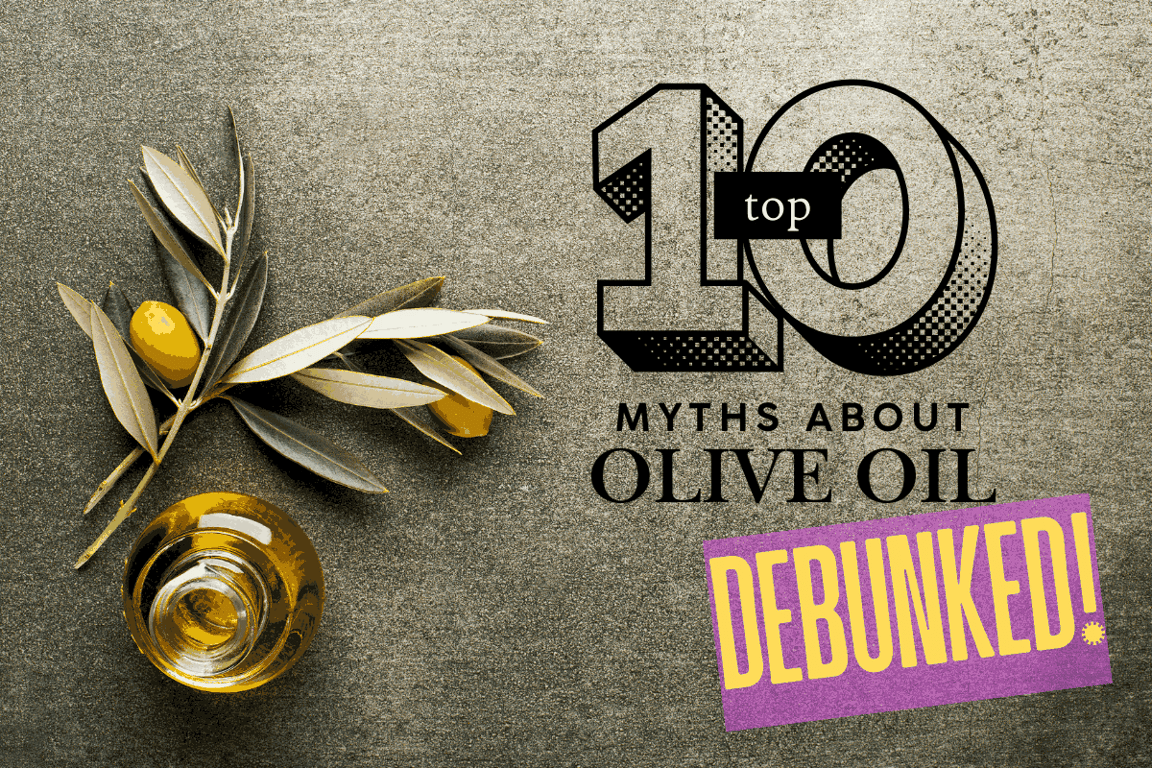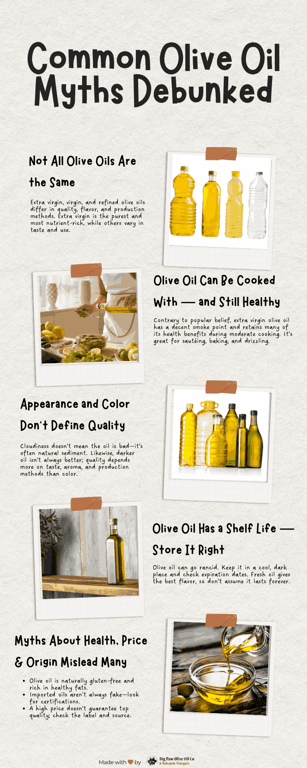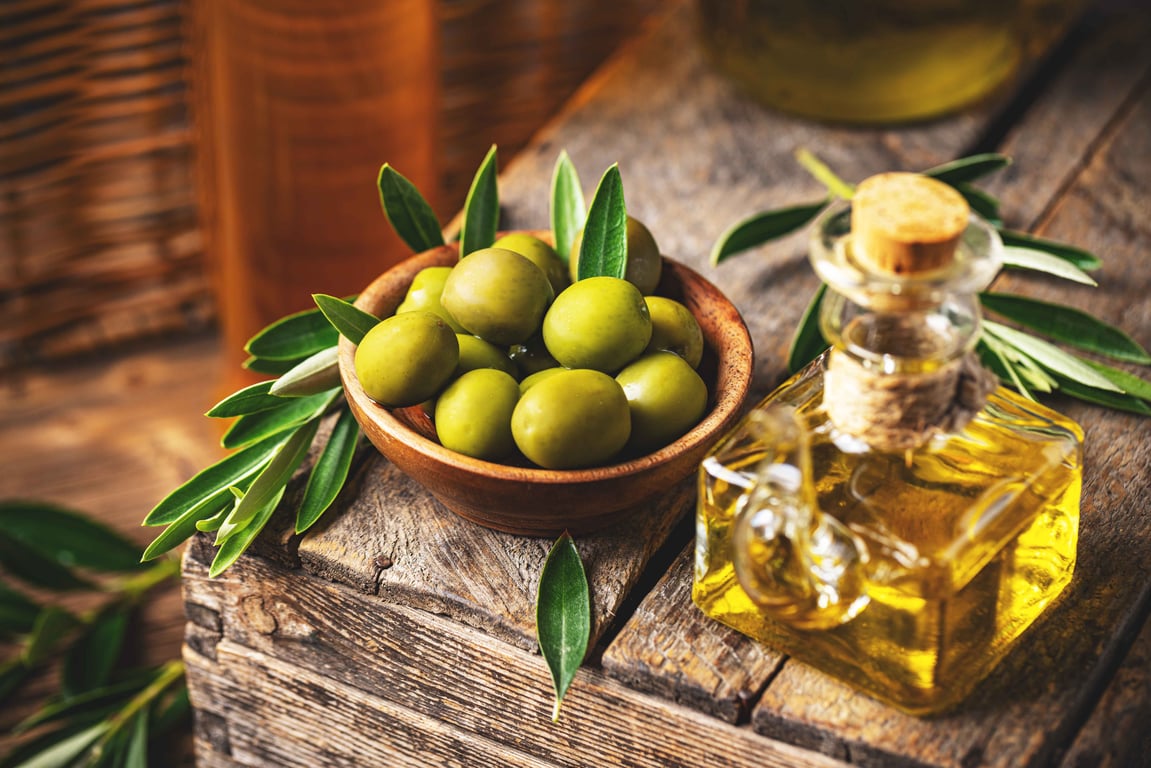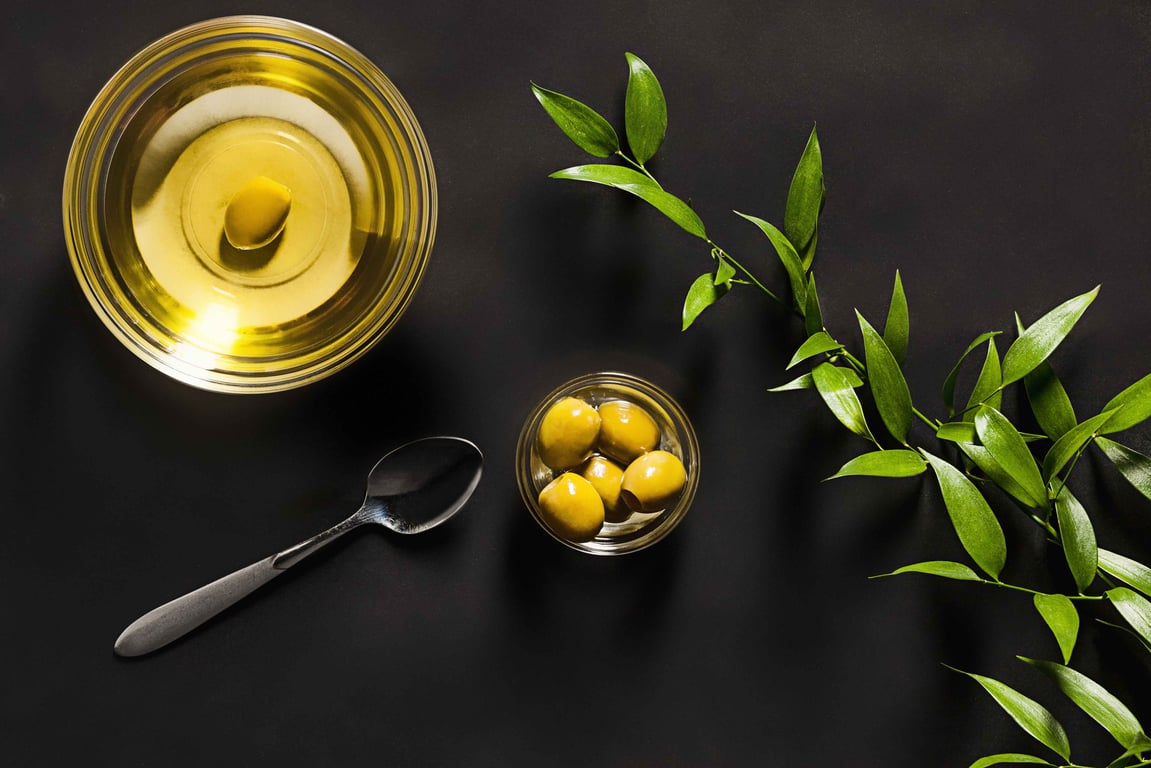Top 10 Myths About Olive Oil Debunked

Welcome to our deep dive into the fascinating world of olive oil! As a beloved staple in kitchens across the globe, olive oil is often championed for its rich flavors and numerous health benefits. However, several myths and misconceptions can cloud our understanding of this precious liquid gold. In this article, we’ll explore and debunk some of the most common olive oil myths. By shedding light on the truths behind these misconceptions, we aim to help you make informed choices and elevate your culinary experience. So, whether you’re a seasoned chef or a curious home cook, let’s unravel the mysteries of olive oil together!
Myth #1: All Olive Oils Are the Same
This is far from the truth. There are various types of olive oils, including extra virgin, virgin, and refined olive oils. Each type has different extraction methods, flavor profiles, and health benefits. Extra virgin olive oil is considered the highest quality and is made from cold-pressed olives, offering a robust flavor and numerous health benefits.
Myth #2: Extra Virgin Olive Oil Can’t Be Used for Cooking
While some may think that extra virgin olive oil is only for drizzling, it can indeed be used for cooking. It has a higher smoke point than many people realize, making it suitable for sautéing and baking. Understanding what to expect from different types of olive oil can help you utilize it more effectively in your cooking.
Myth #3: Olive Oil Loses Its Benefits When Heated
Olive oil, especially extra virgin olive oil, retains many of its health benefits even when cooked. While high heat can degrade some of its nutrients, moderate cooking temperatures allow the beneficial compounds to remain intact, debunking this common misconception. So, feel free to use it in various cooking methods.
Myth #4: Cloudy Olive Oil Means It’s Gone Bad
Cloudiness in olive oil does not indicate spoilage. It can occur due to the presence of natural sediment or due to being unfiltered. It’s important to check the smell and taste rather than rely on appearance to determine its quality. Many people enjoy the rich flavors that unfiltered oils often provide.
Myth #5: Olive Oil Never Expires
Olive oil doesn't spoil like some products, but it does have a shelf life. It can go rancid over time and should be stored properly in a cool, dark place. Always check the expiration date to ensure you're using fresh oil. When stored correctly, good olive oil can last up to two years, but it’s always best to use it sooner for optimal flavor.
Myth #6: Darker Olive Oil Is Always Better
The color of olive oil can range from light yellow to dark green, but it doesn't necessarily correlate with quality. Factors like the type of olives used and when they were harvested affect the oil's color. Quality is better determined by flavor and aroma. This means that while darker oils might be appealing, the best choice relies on personal taste and preference.
Myth #7: Olive Oil Is Fattening and Unhealthy
This myth is misleading. Olive oil is a source of healthy fats, particularly monounsaturated fats, which can support heart health and contribute to a balanced diet. Moderation is key, just like with any oil. Including olive oil in your diet can provide essential nutrients without the guilt often associated with fat consumption.
Myth #8: Olive Oil Contains Gluten
Olive oil is naturally gluten-free. You can safely include it in a gluten-free diet without any concerns about gluten contamination, making it an excellent choice for those with gluten sensitivities. Using olive oil can enhance the flavors of gluten-free dishes and add vibrant health benefits.
Myth #9: Imported Olive Oils Are Always Fake
While it's true that some imported olive oils may not meet quality standards, many reputable brands adhere to strict regulations. Authentic extra virgin olive oil, even when imported, can be found. Look for certifications to ensure quality to avoid falling for this misconception. Doing your due diligence can help you enjoy legitimate flavors from various regions.
Myth #10: You Can Judge Quality Just by Price
Price is one factor in determining olive oil quality, but it’s not the only one. Other aspects, such as the origin, production methods, and labeling, play a critical role. A higher price doesn't always guarantee superior quality, so it’s essential to do your research. Look for oils with proper labeling and information about sourcing to ensure you’re getting the best value.
Conclusion
Understanding olive oil and debunking the myths surrounding it not only enhances your cooking but also enriches your overall culinary knowledge. As we've explored in this article, olive oil comes in various forms, each with unique qualities and benefits. From extra virgin olive oil being versatile in cooking to its health advantages over other fats, olive oil is a powerhouse ingredient that can elevate your meals.
Furthermore, being aware of how to store olive oil, how to select a quality product, and knowing that it fits perfectly in a healthy diet can all contribute to a better culinary experience. Embracing facts about olive oil can elevate not just your dishes but also your body’s well-being, helping you harness its full potential.
So next time you’re in the kitchen, remember these truths and choose olive oil with confidence. Whether you drizzle it over fresh salads, use it for sautéing vegetables, or bake with it, take pride in knowing you’re using a healthy, flavorful ingredient. Enjoy your culinary journey with olive oil, and don’t hesitate to share this knowledge with others to help them appreciate the nuances of this incredible oil!
Here's an Infographic Guide About Debunked Olive Oil Myths



 Fax : 1-973-799-0901
Fax : 1-973-799-0901 Call us now: +1 408-464-9048
Call us now: +1 408-464-9048



